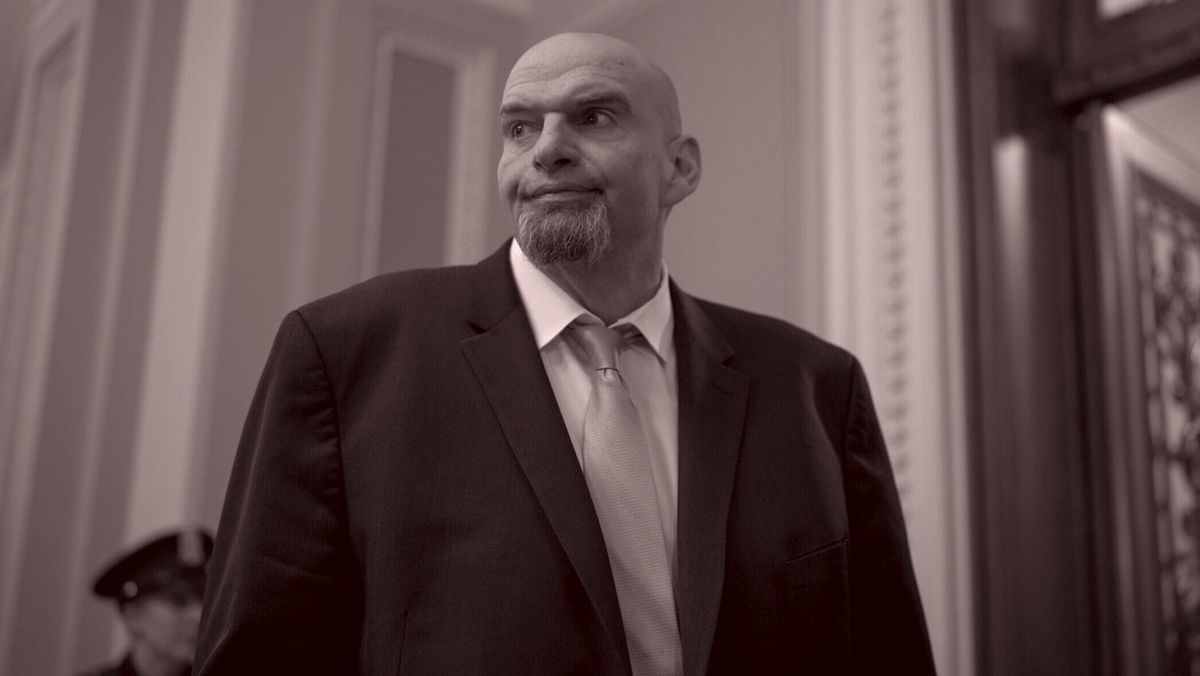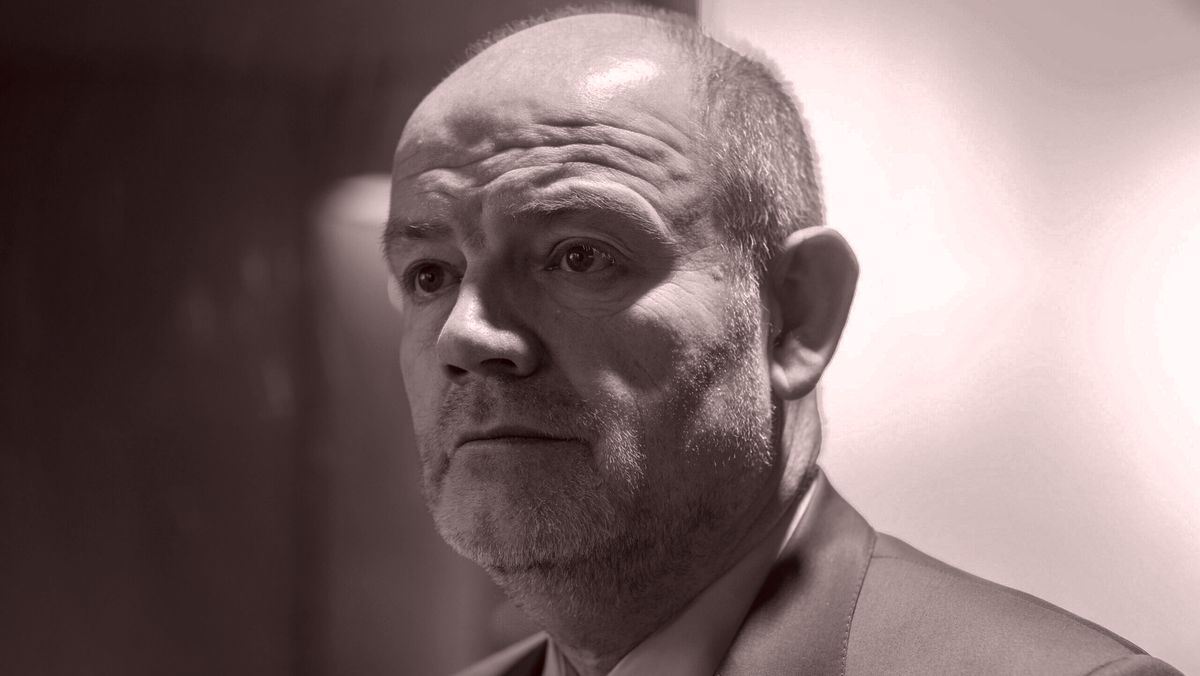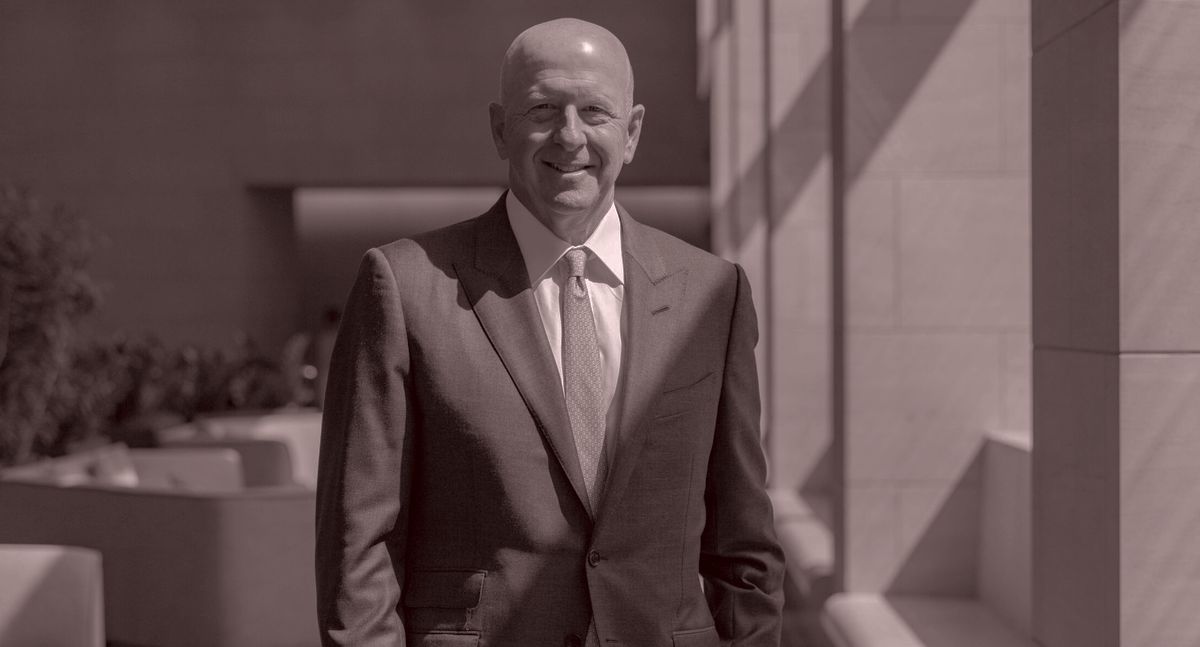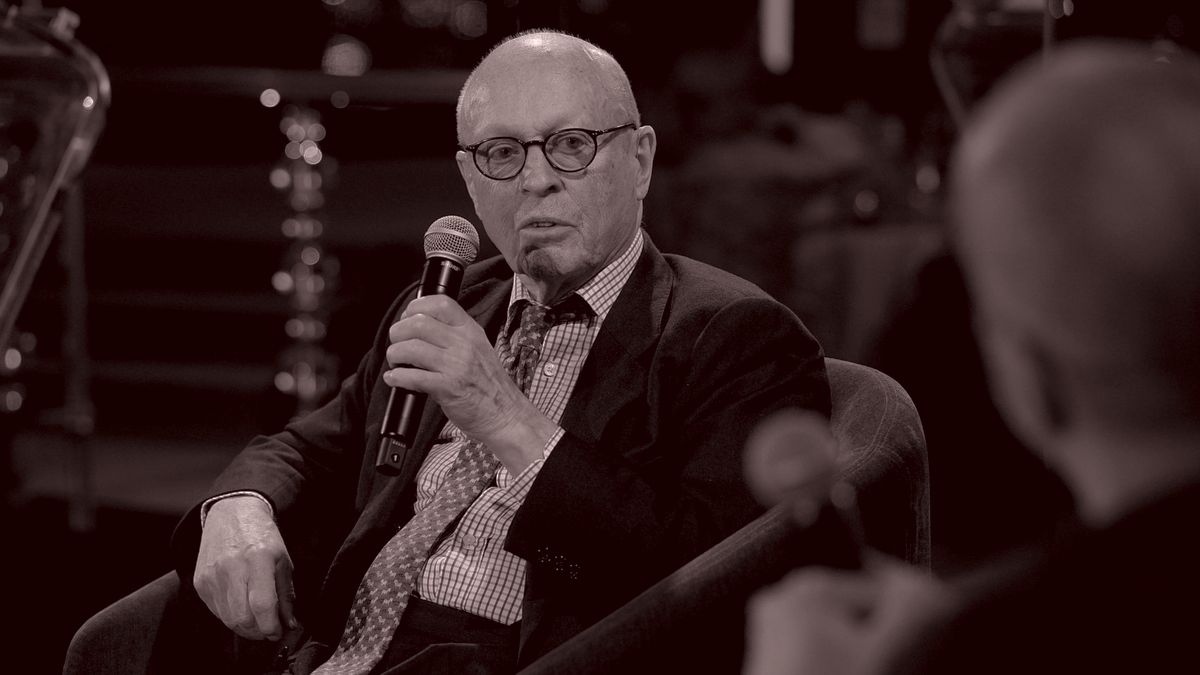Welcome back to The Best & The Brightest. I’m Tara
Palmeri.
It’s day four of Trump II but it already feels like month four. Instead of piling on to the deluge of Trump news, I’m focusing tonight on the Democrats’ search through the wilderness for a new interlocutor—or, perhaps, movement leader. More on that below.
Meanwhile,
I’ll be on the lookout to see how Trump’s inner circle and hangers-on take over the town. They dominated inauguration weekend, corporate sponsors are hosting events in D.C., and the business world has gone beyond simply normalizing Trump to outright celebrating him.
We’ll find out soon whether Trump 2.0 will storm into the D.C. scene with swagger, where, you’ll recall, his officials were screamed
at in restaurants a short eight years ago. First up, will Susie Wiles be the belle of the ball at the annual Alfalfa Club dinner—province of ex-presidents like Joe Biden and George W. Bush, schmoozefest for administration officials—which Trump notably skipped in his first term? His new bestie Jeff Bezos always throws an afterparty at Cafe Milano.
But
first, here’s Abby Livingston…
|
|
|
A MESSAGE FROM OUR SPONSOR
|
|
|
But first, here’s Abby Livingston…
|
|
|

|
Abby Livingston
|
|
The Conscience of the Senate
|
The smart money was always on Alaska’s Lisa
Murkowski to come out against Pete Hegseth’s bid to lead the Pentagon. And so she did today, in a devastating social media post, declaring that she “cannot in good conscience support” the nominee. “The leader of the Department of Defense must demonstrate and model the standards of behavior and character we expect of all servicemembers,” Murkowski
wrote. Referring to his admitted multiple marital infidelities, she pointed out, “Men and women in uniform are held accountable for such actions, and they deserve leaders who uphold these same standards.”
Murkowski was one of two G.O.P. defections in today’s vote to open as many as 30 hours of debate on the nomination, with the confirmation vote expected Friday. Murkowski’s fellow Senate
moderate, Susan Collins, also moved against Hegseth. In her own statement, she explained that she would vote against confirmation, dwelling less on character concerns than the nominee’s lack of experience and previous statements against women serving in combat roles. And though the two senators share a reputation as occasional party-buckers—Murkowski, if
anything, is seen as more rebellious—Collins voted against two Trump cabinet nominees in 2017, while Murkowski voted against only one (Betsy DeVos).
In other words, Murkowski doesn’t make a habit of voting against Republican cabinet picks. Two things could be happening. One, Murkowski is voting her conscience, and is prepared to face the MAGA onslaught. She is, after all,
comfortable in this space (along with Collins and the late John McCain, she was a key G.O.P. vote sinking Trump’s Obamacare repeal) with a staggering threshold for political pain. Murkowski has survived more rounds with the right wing than just about any other establishment Republican, even staving off a Palin-backed Tea Party candidate in 2010 via a write-in campaign
(it’s a long story). And after years of defiance during Trump’s first term (she was also a “no” to confirm Brett Kavanaugh for the Supreme Court, and a “yes” to convict Trump during his second impeachment), she won reelection in 2022, and isn’t up again until 2028. Most Republican senators are not operating from this
place of political strength back home.
Another, not mutually exclusive, possibility: Murkowski is creating space for other Republican senators to join her and oppose Hegseth. As a former Republican Senate staffer told me, “She’s got nothing to lose by saying no for Pete, but is she setting up a permission structure for others to follow?” The current Senate margin is 53-47. Two more Republicans would have to join
Collins and Murkowski to sink Hegseth’s nomination, assuming no Democratic “yes” votes. Republicans once seen as likely defectors (Joni Ernst, John Curtis) have signaled their support for him. Barring any wildcards before tomorrow night, Murkowski may wind up on the losing side—and Hegseth at the top of the Pentagon.
|
|
|
Now, on to the main event…
|
|
|
As Democrats seek answers in the political wilderness, some are
nodding toward… John Fetterman—the hulking, shorts-wearing, sometimes inscrutably anti-party politician—as a model for the sort of unexpected Democratic leader who might emerge as an antidote to Trump.
|
|
|
Still reeling from Donald Trump’s win in
November, Democrats seemed entirely flat-footed during the first 72 hours of his presidency while a barrage of executive orders vaporized the ancien régime in Washington. Sure, some of this was ostensibly strategic: In recent weeks, multiple Democratic leaders have expressed their intent to lie low and keep their powder dry until public sentiment inevitably turns. But it’s been impossible to ignore the glaring absence of any sort of Democratic standard-bearer, or even a
would-be standard-bearer, to bring the fight to Trump and the Republican Congress. A rope-a-dope strategy works only if the fighter has a knock-out punch ready to throw in a later round.
Also noticeably missing in response to Trump’s blitzkrieg—pardoning the January 6 rioters, requiring federal workers to snitch on colleagues practicing D.E.I., attempting to rewrite the 14th Amendment by fiat—has
been anything resembling Nancy Pelosi’s rousing “Hell no!” rallying cry for Democrats. But really, who’s left to unite them? Not Alexandria Ocasio-Cortez, who is popular with the base but doesn’t score highly with the swing voters who delivered the election to Trump. Nor Hakeem Jeffries and Chuck Schumer, who are busy licking their wounds, organizing the caucuses in their respective congressional chambers, and trying to cheer up
dejected donors. “They seem leaderless,” remarked a G.O.P. strategist, somewhat stating the obvious. “It’s a void from an inspirational perspective. I think part of the calculation is to be a constructive partner [to Trump] when they can, and take a stand when they can’t, but they don’t have a messenger yet.”
Parties inevitably experience this sort of identity crisis. The Republicans had the rudderless blues after
Barack Obama won his power trifecta in 2008. The Democrats were in a similar spot four years earlier, after they were unable to vanquish a deeply weakened George W. Bush—a vacuum that inevitably paved the way for Obama’s ascent. “Leaders are made at this time,” said another Republican strategist. Democrats “need a young firebrand to make the case that Trump is with the billionaires, not with you.”
|
|
|
A MESSAGE FROM OUR SPONSOR
|
|
|
But, of course, it’s often impossible to predict in the moment
how the pendulum of public opinion will swing. In 2004, Democrats assumed they’d need a down-home, beer-swilling rancher type; instead they found success with a former community organizer from Chicago. After Obama, Reince Priebus’s R.N.C. composed its infamous Growth & Opportunity Project, a.k.a. the autopsy, which called for a more compassionate party that connected with Hispanic voters and narrowed its messaging on immigration policy. Instead, of course, the moment
was seized by Trump.
With Americans burned out, craving authenticity, and tired of conventions, institutions, and norms, some Democrats and Republicans have been nodding toward Senator John Fetterman as the sort of unconventional, party-line-scrambling politician who could fill a leadership void without really trying. With his working-class appeal, tattoos, and habit of
showing up to the Senate in shorts and hoodies, Fetterman oozes a kind of Rogan-esque unpredictable authenticity that his peers have struggled to capture.
Fetterman is increasingly polarizing for all the same reasons. He’s pissed off the left with his aggressively pro-Israel rhetoric; he co-sponsored the Laken Riley Act, giving vulnerable Democrats cover on the immigration issue; and
he recently visited Mar-a-Lago even as he’s criticized Trump on CNN, declaring: “It doesn’t make you a man to pick on trans or gay kids. It just makes you an asshole.” Earlier this week, he shot down rumors that he might switch parties, calling the speculation “amateur hour shit.”
Indeed, he seems happy to pick fights with virtually anyone, especially those in his own party. He called congressional Democrats “spineless” for not standing behind Joe Biden after the former president tanked in last summer’s debate, and called the hush-money case against Trump “bullshit.” He also pushed back on Kamala Harris’s claim that Trump was a fascist. Indeed, he evinces the same plainspokenness that, for a time, made Biden popular
in his party. “Trump is a ‘tell it like it is’ person and so is Fetterman,” said a former D.N.C. operative. “You may not like it, you may not like how he says it, or what he says, but he’s making some noise just to do it. And he’s not afraid of being canceled.”
|
Who’s Afraid of John Fetterman?
|
Fetterman’s iconoclasm is unique. He’s nothing like Kyrsten
Sinema—who, with her go-go boots and wig, always seemed starved for attention. Nor is he the second coming of Joe Manchin, who was mostly predictable, even while frustrating Democrats. Fetterman’s contrarianism is more of the zero-fucks variety that new media craves. He can show up in places where other Democrats won’t, like The Joe Rogan Experience. And he offers Democrats a version of masculinity that serves as a counterpoint to Trump and can appeal to a
segment of Gen Z that more sanctimonious Democrats can’t.
|
|
|
Obviously, a confluence of issues prevents Fetterman from
emerging out of the party’s ashes as a spokesman. His maverick authenticity is double-edged: He’s not a party man. The Democratic base views him with suspicion and still craves a hardy resistance movement, for which he is very clearly not the guy. But interest in Fetterman, as an experiment in alternate models for the party, has undeniably grown since the election.
A source close to Schumer and
Jeffries pushed back on the notion that the party is in the market for a singular messenger. Instead, this person said, Democrats are banking on a team of warriors—akin to the leaderless #Resistance-fueled wave that retook the House in the 2018 midterms, or the cohort that withstood an expected shellacking in 2022, post-Dobbs. They’re also counting on Trump’s inevitable mismanagement of the government and inability to lower inflation to drive voters back into their arms. “It’s
hard to be heard right now during the president’s next 100 days,” the Democratic leadership source said. “Trump is going to get his runway, but it’s not going to last long. He doesn’t seem to be laser-focused on lowering costs or doing anything economically.”
Still, with so much noise around Trump, wouldn’t it be easier to break through with one messenger who appeals to the voters that Democrats lost? A former
D.N.C. operative told me that Fetterman’s “center-left” messaging stands a good chance of attracting independent voters. “It’s what appeals to most of the country, who don’t actually give a shit about politics, right?” the operative said. “Fetterman’s not talking about stupid Bernie woke-left shit that cost us the fucking election.”
|
|
|
Unique and privileged insight into the private conversation going on inside Wall Street, as told by the
best-selling journalist and former M&A banker.
|
|
|
Puck senior political correspondent Tara Palmeri grapples with the aftermath of what may be the most chaotic and
consequential presidential election cycle of our lifetime. With 15 years covering politics, Tara speaks with the smartest political minds to discuss what’s happening behind the scenes in Washington, D.C., from the campaign trail to the Capitol.
|
|
|
Need help? Review our FAQ page or contact us for assistance. For brand partnerships, email ads@puck.news.
You received this email because you signed up to receive emails from Puck, or as part of your Puck account associated with . To stop receiving this newsletter and/or manage all your email preferences, click
here.
|
Puck is published by Heat Media LLC. 107 Greenwich St, New York, NY 10006
|
|
|
|





_01JHR1TGXHC4ZAB7TANPGJYFHJ.jpg)

























